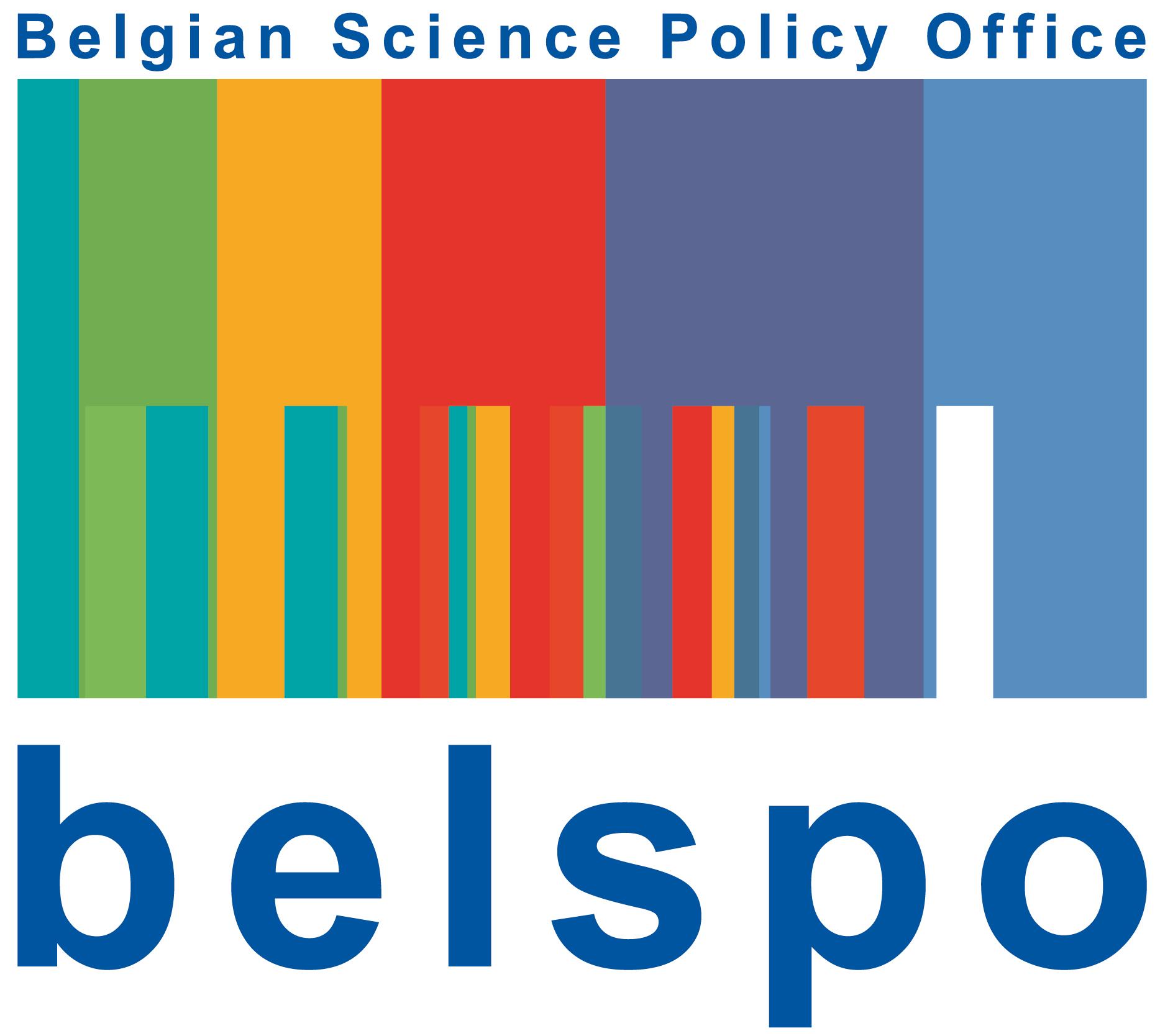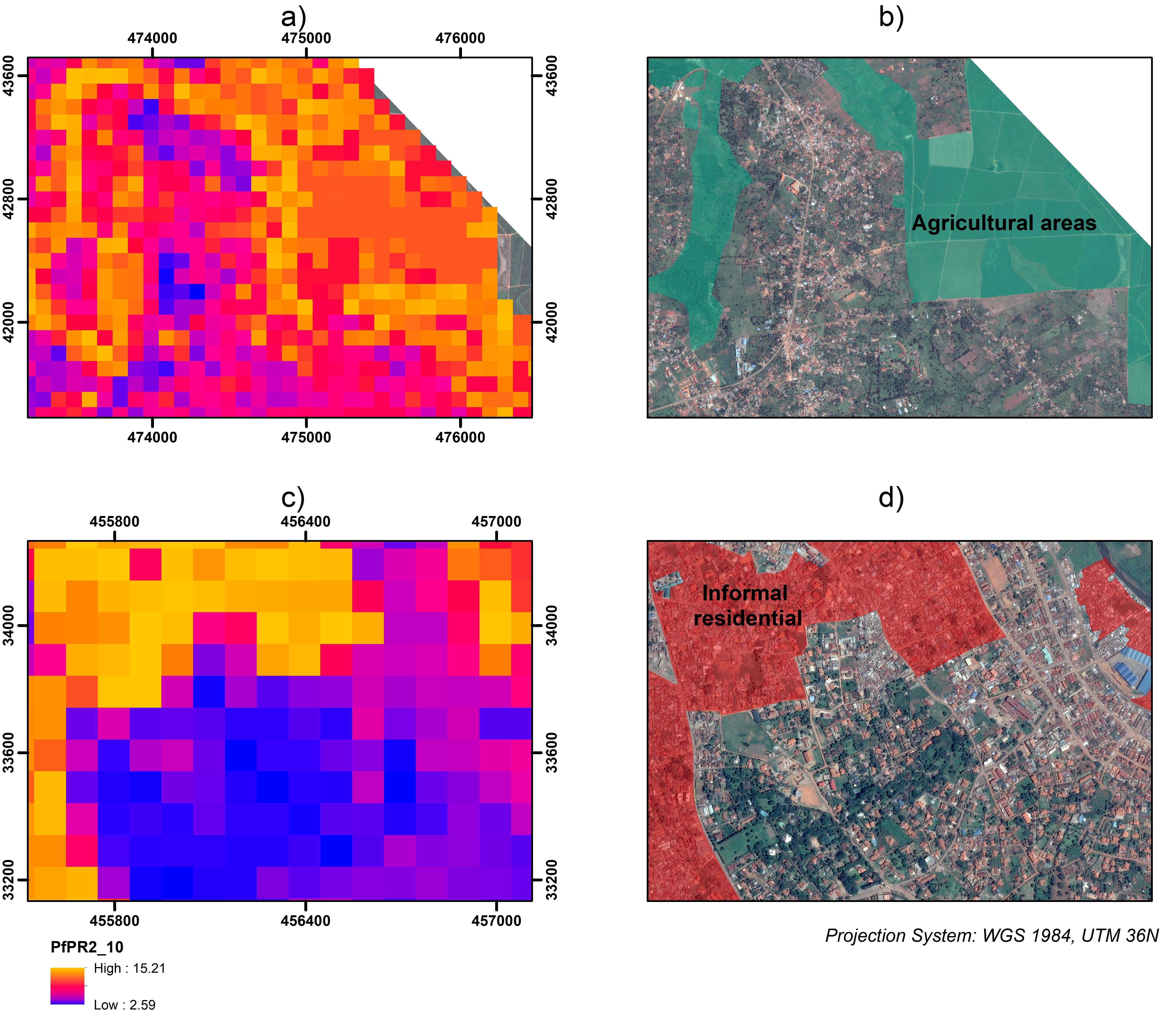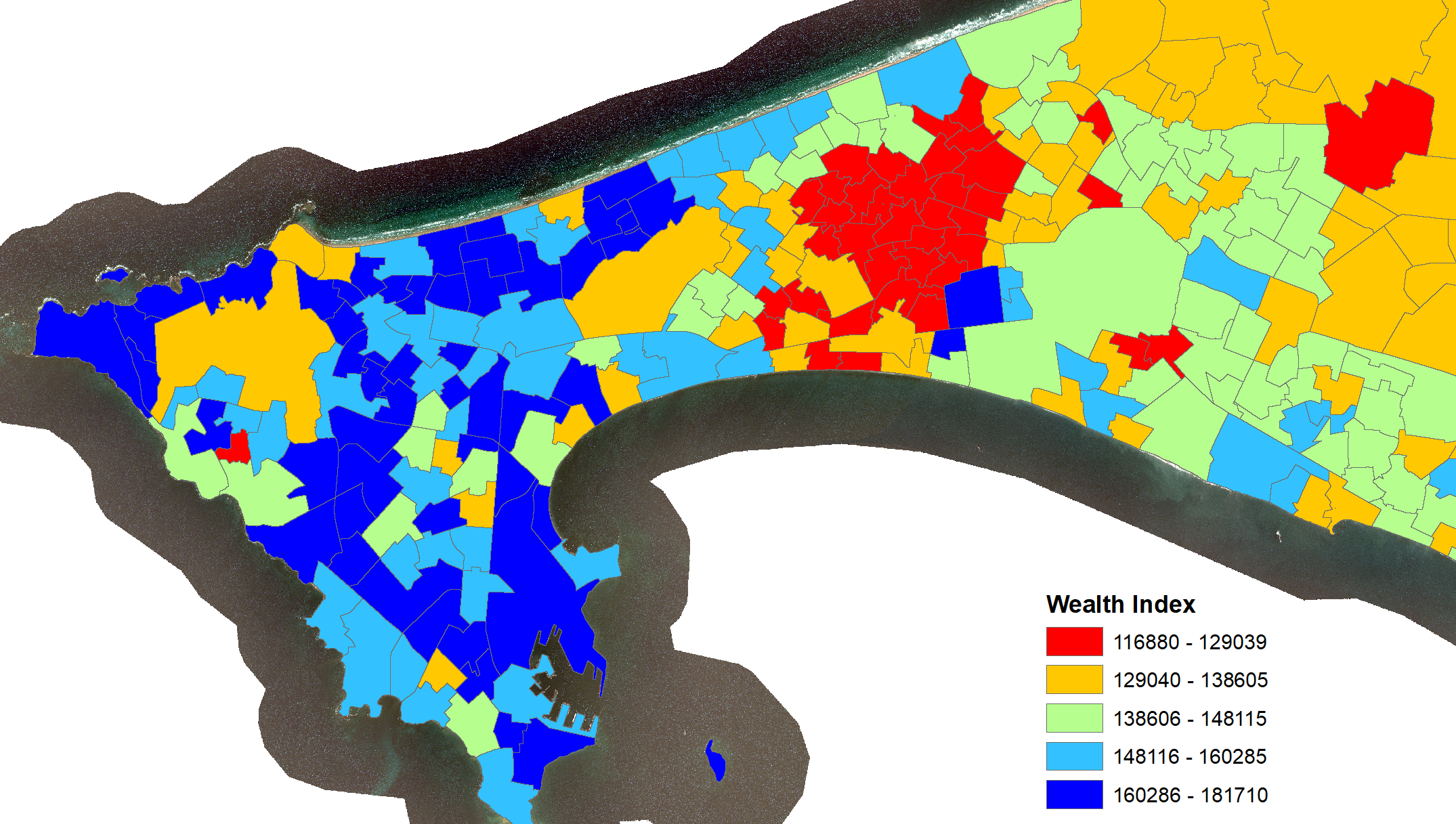-
Share this page
REACT project
Remote sensing for Epidemiology in African CiTies
Description
The general scientific objective that was addressed by REACT was to improve our understanding of urban health inequalities in epidemiological data-poor countries, using remote sensing and spatial modelling. There were two main goals, one substantive and one methodological:
- Establishing the demographic, socioeconomic, climatic and environmental conditions associated with the spatial variation of the incidence of infectious diseases within and between fast growing urban centres in Sub-Saharan Africa.
- Harnessing remote sensing capabilities to achieve the first goal, using a multi-sensor and multi-scale spatio-temporal approach.
We implemented a multi-sensor, multi-scale, and multi-temporal approach. The project consisted of three broad main phases: data acquisition and preparation, sub-model generation, and final epidemiological modelling for understanding intra-city and inter-city epidemiological variability. The predictability of inter-urban variations of malaria infection risk was be studied at sub-continental scale in a set of about 20 large cities of sub-Saharan Africa using HRRS and L/MRRS, whereas the intra-urban analysis focused on a subset of 4 cities using VHRRS and HRRS. The methodology was innovative in many aspects. Highlights include the development of the first high resolution (100 meters) intra-urban malaria models relying on EO-data, for two sub-Saharan African (SSA) cities. Besides, due to the high thematic level of our input LULC maps, we could make strong associations of malaria prevalence with types of urban neighbourhoods and biophysical characteristics, expanding our current knowledge of urban malaria. We also successfully tested the transferability potential of high- to moderate resolution malaria models in a set of 9 cities, harnessing the potential of Local Climate Zones (LCZ) and climate-related data.
Period
2016 - 2021
Partners
Department of Geography - Université de Namur - Website
Department of Earth and Environmental Sciences - KU Leuven - Website
Mitchell Center for Sustainability Solutions - University of Maine - Website
Funding
Research funded by the Belgian Science Policy (research project SR/00/337).


Malaria prevalence estimates at a 100 meter resolution in Kampala, Uganda. a,b) in peri-urban agricultural areas and c,d) in informal and formal settlements.

Predicted household wealth in Dakar, using machine learning and EO datasets.
